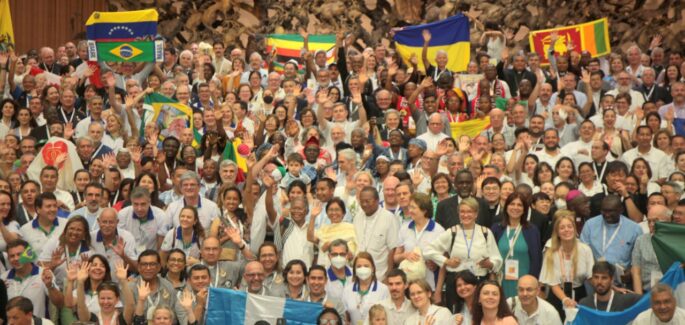The family, a school of humanity.
The fruitfulness of the family become it a school of mutial love, fraternity and socialization, tenderness, humanity: “The bond of fraternity that forms in the family between children, if consolidated by an educational atmosphere of openness to others, is a great school of freedom and peace…it is the family itself that introduces fraternity into the world. From this initial experience, nourished by affection and education at home the style of fraternity radiates like a promise upon the whole of society…children do need to be patiently taught to treat one another as brothers and sisters. This training, at times quite demanding, is a true school of socialization .”(AL 194-195); the influence of the family goes beyond the threshold of the house and it accompanies the child and the teenager in the larger social context: “The task of education is to make us sense that the world and society are also our home; it trains us how to live in this greater home. In the family, we learn closeness, care and respect for others. We break out of our fatal self-a bsorption and come to realize that we are living with and alongside others who are worthy of our concern, our kindness and our affection. There is no social bond without this primary, everyday, almost microscopic aspect of living side by side, crossing paths at different times of the day, being concerned about everything that affects us, helping one another with ordinary little things…” (AL 276).
bsorption and come to realize that we are living with and alongside others who are worthy of our concern, our kindness and our affection. There is no social bond without this primary, everyday, almost microscopic aspect of living side by side, crossing paths at different times of the day, being concerned about everything that affects us, helping one another with ordinary little things…” (AL 276).
In particular, the Pope underlines the value given to the elderly as a criterion of civilization: “…attention to the elderly makes the difference in a society. Does a society show concern for the elderly? Does it make room for the elderly? Such a society will move forward if it respects the wisdom of the elderly…” (AL 192).
A family that keeps the historical memory is a social asset to make the world more domestic, and therefore more livable, more humane, since with no memory there is no future and above all there is no humanization.
“A family that fails to respect and cherish its grandparents , who are its living memory, is already in decline, whereas a family that remembers has a future. “ (AL 193).
(Comment by Jesus Moran at the meeting of the New Family Secretariats held in Castel Gandolfo from 3 to 6 November 2016)




